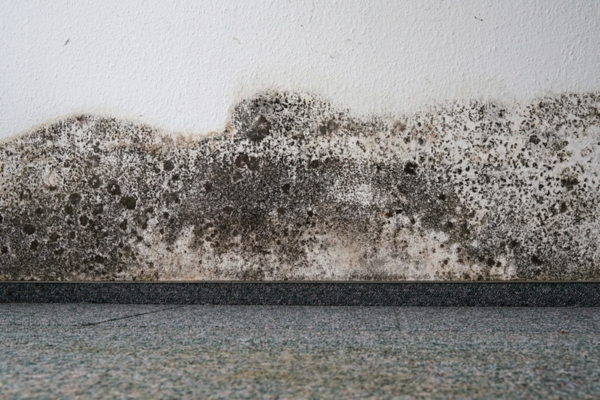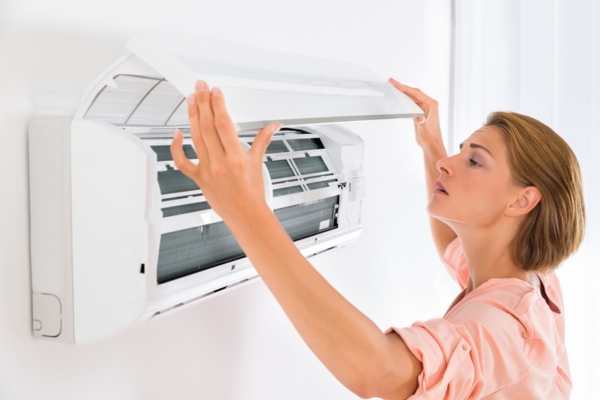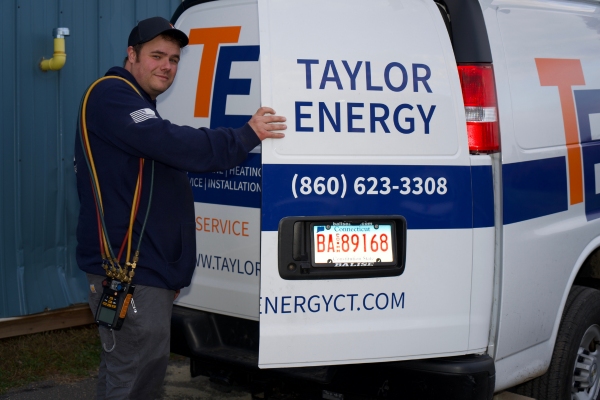Contents
The Environmental Protection Agency in the United States emphasizes that mold development requires three essential components: moisture, nutrients, and oxygen. These conditions imply that almost any moist spot in your home is at risk of developing mold, particularly in air conditioning systems. The presence of air conditioner mold is particularly concerning due to its rapid spread throughout the home, posing significant health risks to humans and pets. Therefore, hiring a qualified HVAC technician like Taylor Energy to regularly check your air conditioning unit to maintain a healthy living environment is crucial.
Practical Strategies to Keep Your Air Conditioner Mold-Free

Mold development inside your air conditioner can cause significant damage, leading to costly repairs. Home insurance usually covers mold damage only when caused by events explicitly covered in the policy, such as appliance-related flooding, which is essential to understand.
Consequently, taking proactive steps to prevent mold in your air conditioner is economically prudent and crucial for health. The following sections explore the importance of a mold-free air conditioning system and provide practical prevention tips.
Keep your home comfortable and safe. Schedule your HVAC maintenance with Taylor Energy today!
The Hazards of Mold in Air Conditioners

According to Medical News Today, mold in homes isn’t always deadly, but it can severely affect health by emitting toxins that impact the respiratory system. These toxins can cause allergies, breathing problems, and aspergillosis.
The danger increases when mold grows within air conditioners, as it can easily circulate through the home, exposing inhabitants to harmful spores. Additionally, mold can harm the air conditioner, particularly if it reaches the electrical parts, diminishing efficiency and possibly necessitating costly repairs or replacement.
Ensure your home’s HVAC system runs efficiently all year round by booking a tune-up or consulting for a system upgrade with Taylor Energy now.
Detecting Mold in Your Air Conditioning System

Considering the health hazards linked to mold, you must be alert for signs that it may grow in your air conditioner. Mold frequently develops in the moist parts of an AC unit, where it’s often hard to see. This issue is further complicated because mold spores are tiny and usually can’t be seen with the naked eye until they accumulate into substantial colonies. To definitively determine if mold is present in your AC, its ventilation system, or any other part of your home, it’s recommended to seek the expertise of a professional HVAC contractor.
A skilled HVAC professional, well-versed in handling similar issues, can identify mold presence even when these microscopic spores aren’t visible to the naked eye. With this expertise, it’s crucial to watch for signs that indicate mold growth in your air conditioning system.
Signs of Mold Growth in Your Air Conditioner
- Musty Air Conditioner Smell: A musty smell is frequently the first and most evident indicator of mold or mildew in your home. If you detect an unexplained musty odor, it’s likely coming from mold growing within your air conditioning system.
- Visible Signs: In its early stages, mold is often microscopic and not easily seen, but as it matures and produces spores, it becomes more visible. Depending on environmental conditions like moisture, light, and available nutrients, Mold comes in black, grey, white, green, red, orange, brown, and purple. These color variations can help make mold visible to the naked eye. Be vigilant for any unusual color patches or growths, which may be signs of mold development.
- Increased Home Humidity: If you notice higher humidity levels in your home while the air conditioner is operational, this could point to mold growth within the system. Air conditioners are designed to cool the air and reduce moisture levels. However, if mold clogs the system’s components, it can hinder this dehumidifying function, resulting in elevated indoor humidity.
- Health Issues: Should family members or pets start to suffer from sudden illnesses when the air conditioner is running, this may indicate mold contamination in the unit. Common symptoms of mold exposure include sneezing, coughing, watery eyes, wheezing, nasal congestion, itchy skin, and other allergic reactions. Those with asthma might experience more intense symptoms when exposed.
Removing Mold from Your Air Conditioner
Due to mold removal’s complex nature and health hazards, hiring a qualified and experienced HVAC professional for this task is crucial. Certified HVAC contractors have the essential skills and knowledge to handle mold issues in air conditioners effectively and safely. Below are the steps that a professional might undertake to eliminate mold from your air conditioning system:
- Air Conditioning System Inspection: The contractor will start with a comprehensive inspection of your air conditioner and ductwork to locate and assess the extent of mold growth.
- Assessment of Your Air Conditioner Unit: Once the mold is identified, the professional will evaluate the severity of the infestation to decide on the best remediation approach.
- Mold Spores Containment: During cleanup, the contractor will implement containment strategies to prevent mold spores from dispersing to other parts of your home.
- Air Filtration: Air scrubbers and HEPA filters will catch airborne mold spores and purify the surrounding air.
- Mold Removal: The contractor will use specialized cleaning agents and tools to thoroughly remove mold from the affected components of the air conditioner and ducts, ensuring all traces of mold are eliminated.
- Mold Growth Prevention: After cleaning, the contractor might suggest strategies to prevent future mold occurrences, such as enhancing ventilation, repairing leaks, or installing a dehumidifier.
- HVAC System Maintenance: Regular HVAC system maintenance is recommended to ensure it operates efficiently and remains mold-free.
By engaging a professional HVAC contractor to inspect, clean, and maintain your air conditioning system, you can eliminate mold and prevent its recurrence, thus protecting the air quality in your home and your family’s health.
Trust Taylor Energy for all your HVAC needs. Call us today for quality service and guaranteed customer satisfaction.
Strategies to Prevent Air Conditioner Mold

Once mold is detected in your air conditioner, it often indicates that the issue is well-established and may have already caused damage. Preventative measures are, therefore, vital to circumvent the challenges associated with mold infestations. Regular tune-ups by a professional HVAC contractor are crucial to keeping your air conditioning system free of mold. To protect your unit from mold, an experienced HVAC contractor will carry out several important maintenance tasks:
- Disinfecting the AC: An essential aspect of maintaining a healthy air system is disinfecting the air conditioner, ducts, and other ventilation components to eliminate mold and various microbes. A professional HVAC contractor will use EPA-approved disinfectants for effective cleaning.
- Cleaning and Replacing Filters: Maintaining optimal air quality involves regularly cleaning your AC filter—every two weeks, especially in areas with high pollution. The US Department of Energy also recommends replacing the filter every 45 to 90 days, which is essential for proper airflow and efficiency. A skilled HVAC contractor best handles this task to ensure thorough and effective maintenance.
- Applying a Mold Inhibitor: A mold inhibitor is a chemical solution specifically formulated to prevent the growth of mold and mildew inside the air conditioning system.
- Keeping Air Ducts Dry: Moisture in air ducts provides an ideal breeding ground for mildew and mold. An HVAC contractor should ensure the ducts remain dry by thoroughly cleaning them, making necessary repairs, and replacing any components that have sustained water damage.
- Installing a UV Light: A UV light installed in the air conditioning system can effectively neutralize a wide range of microbes, serving as a potent method to prevent mold proliferation.
Conclusion
Mold in air conditioners can compromise the structural integrity of your home and the health of its residents. To protect your living environment and ensure the well-being of everyone in your household, hire a reputable HVAC technician for routine inspections and cleaning of your AC system. Furthermore, a certified HVAC professional can offer expert recommendations on effective methods to prevent mold growth, helping to keep your home safe and healthy.
Contact Taylor Energy for Premier Air Conditioning Services
Taylor Energy provides superior heating and cooling services throughout central Maryland and southern Pennsylvania. Our team comprises highly trained, professionally certified technicians committed to excellence in HVAC maintenance, repairs, installations, and replacements. Our technicians use their deep industry knowledge and experience to ensure your HVAC system functions optimally.
Taylor Energy offers competitive pricing on heating and cooling services in the region. Our extensive maintenance services are made to enhance comfort, boost system energy efficiency, and reduce cooling costs. Whether you need HVAC repair or are considering a system upgrade, our experts can guide you to the best solutions that fit your requirements and budget. We guarantee satisfaction with every job. For a professional AC tune-up or to schedule a service consultation, contact Taylor Energy today. Free in-home estimates are available.
You can click here to contact us now or call us at (860) 623-3308 to find out more! Click the link to view our service area.

Related Articles:
